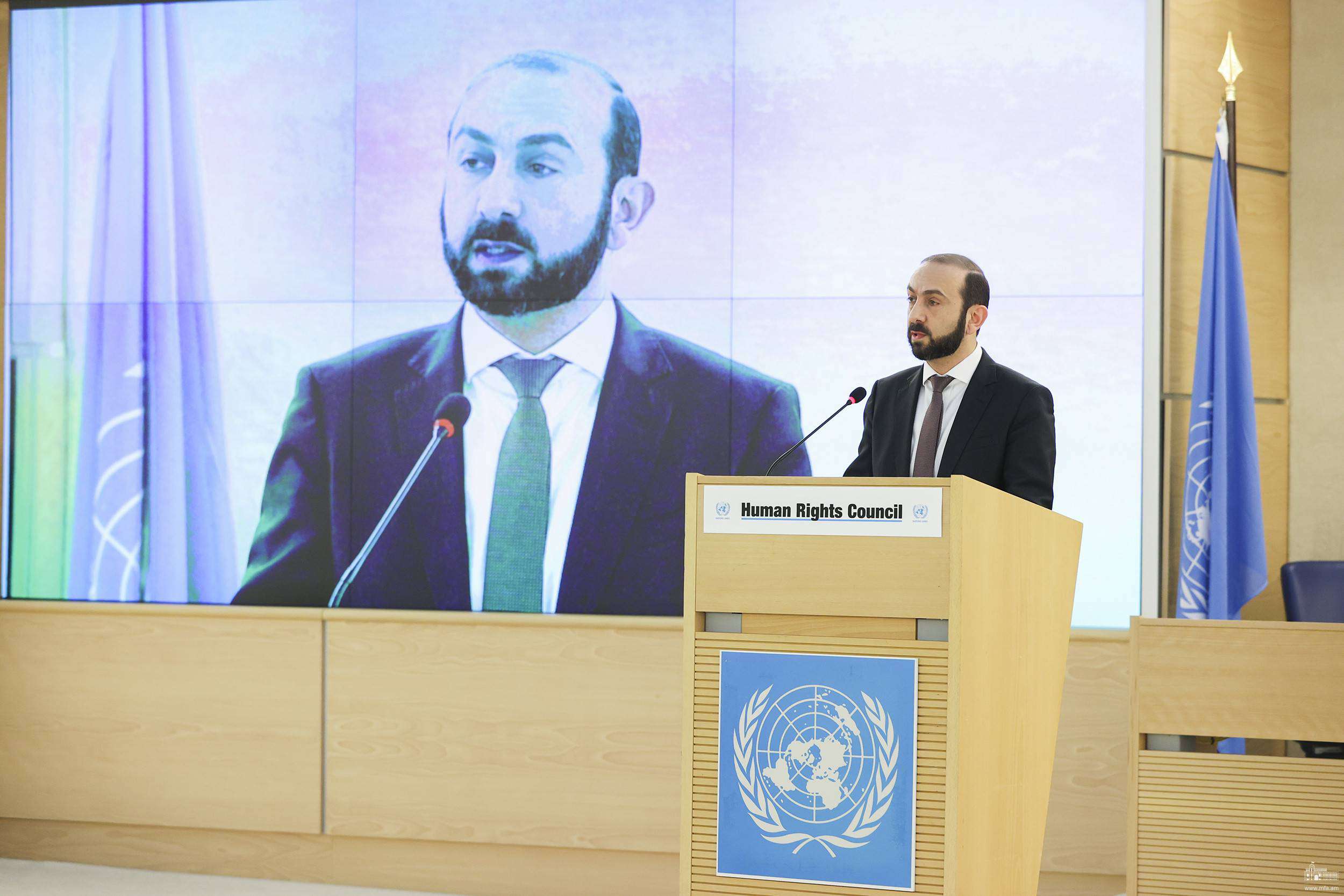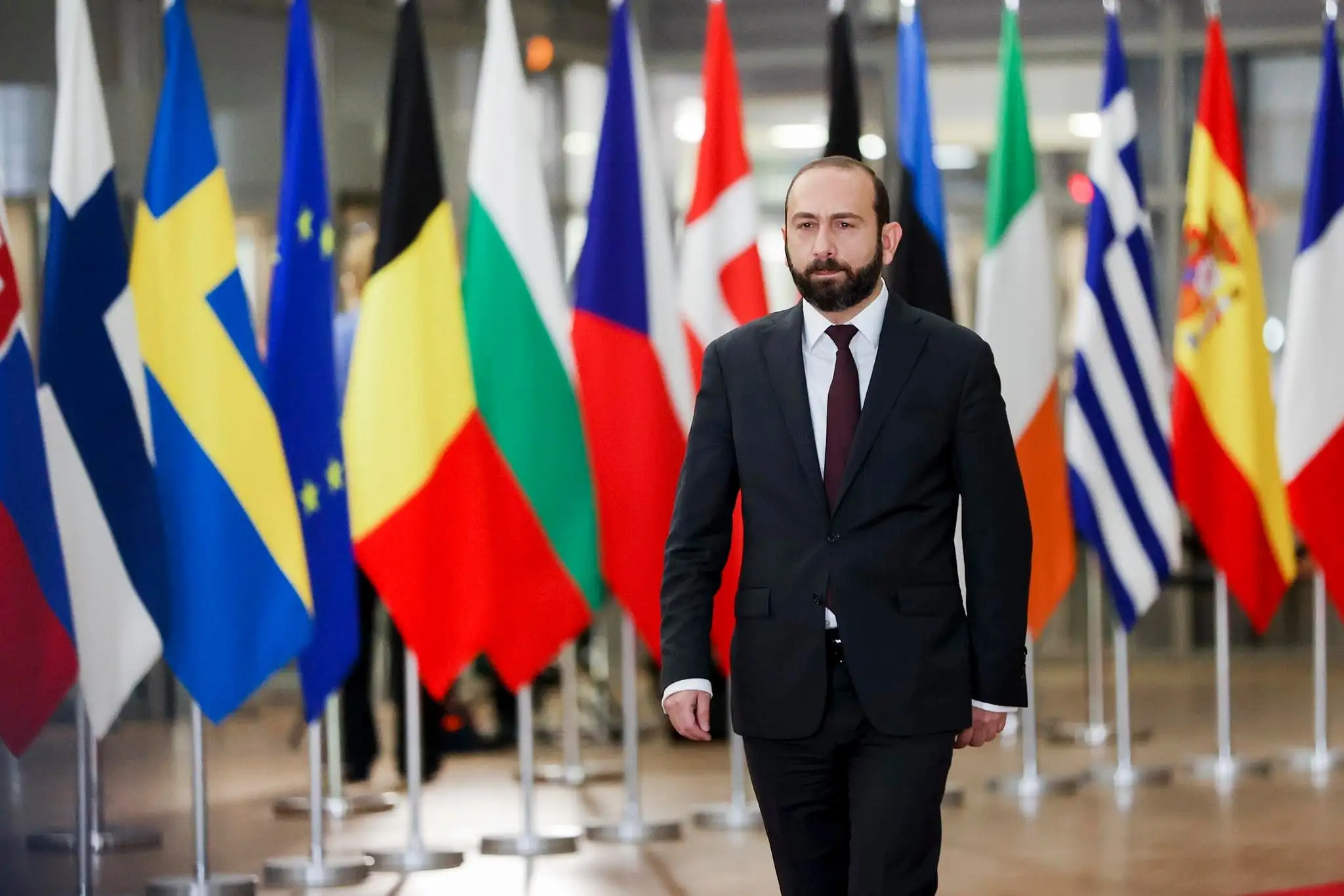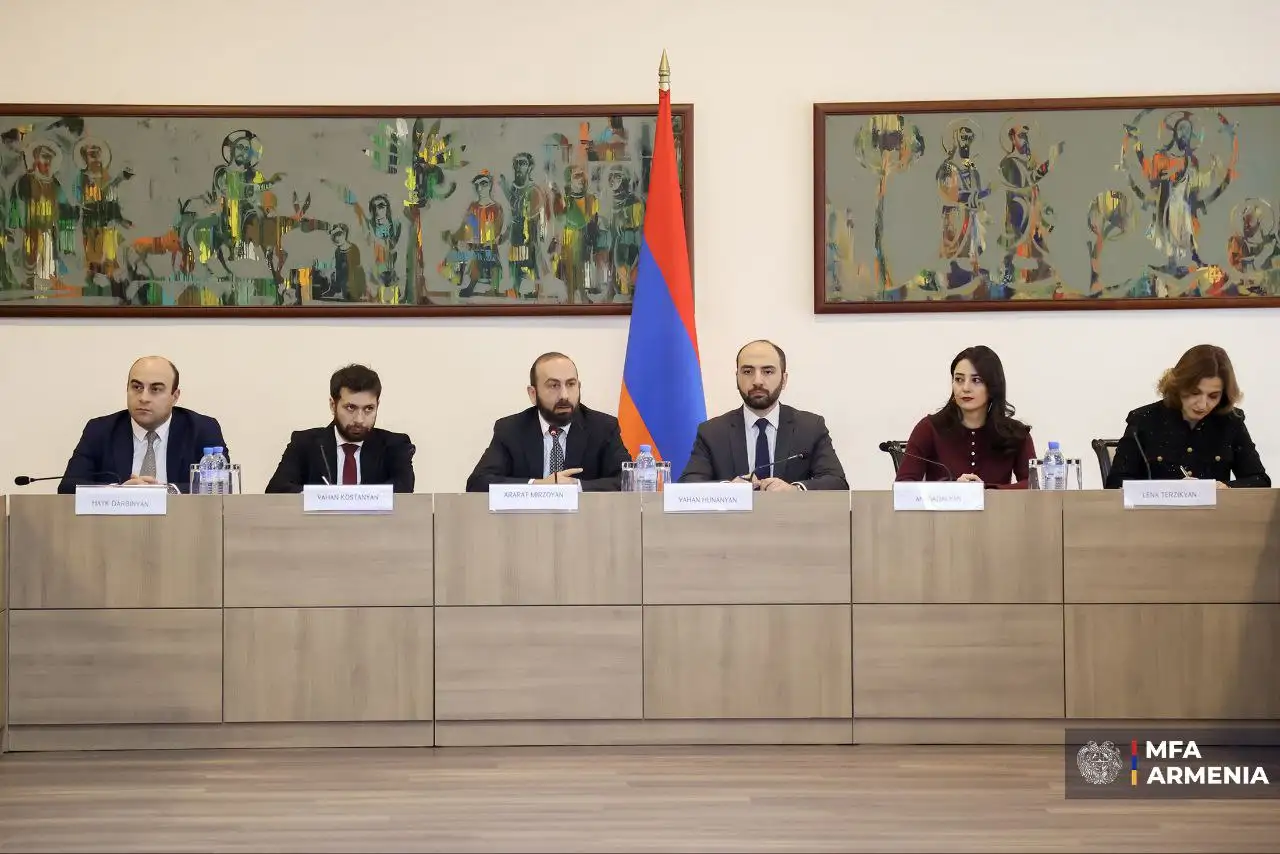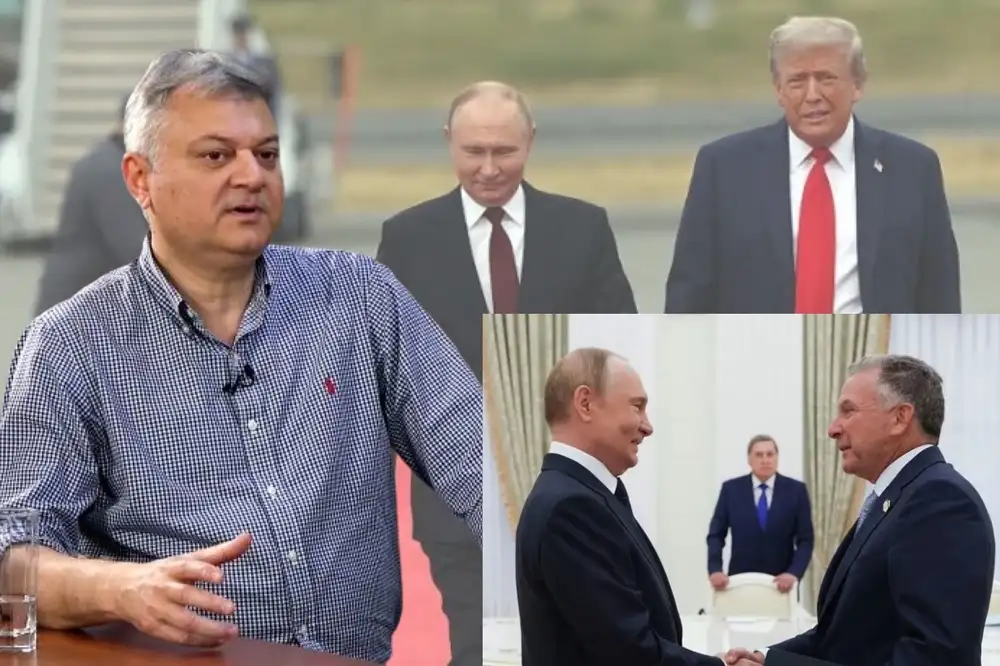On February 28, RA Foreign Minister Ararat Mirzoyan, who was in Geneva, participated in the 52nd session of the UN Human Rights Council and delivered a speech. In his speech, Minister Mirzoyan, in particular, noted:
"Armenia congratulates the newly elected Bureau of the Human Rights Council chaired by Mr. Vaclav Balek. We would also like to extend our best wishes to Mr. Volker Türk as this is his first Council meeting as the UN High Commissioner for Human Rights.
Armenia reaffirms its unwavering commitment to the protection and promotion of human rights. This year, Armenia again received the highest ratings in the region according to the World Press Freedom Index and the Democracy Index of the Economist Intelligence Unit.
Being a member of the Human Rights Council, including the Bureau in 2022, Armenia has sought to make a significant contribution to international efforts aimed at the promotion and protection of human rights in the world. I would especially like to emphasize Armenia's contribution to international efforts to prevent genocide. We thank each of the states that supported the consensus adoption of the Human Rights Council Resolutions on the Prevention of Genocide presented by Armenia in 2022.
In 2023, we celebrate the 75th anniversary of the Convention on the Prevention and Punishment of the Crime of Genocide, the first human rights treaty adopted by the General Assembly. The day after that, the Universal Declaration of Human Rights was adopted. Such a sequence was not at all accidental, because it was the period following the bloodiest and most brutal war in human history. Those two documents laid a solid foundation for the UN human rights architecture.
Mr. President, according to the assessment made recently by the UN Secretary-General. "We are facing the most serious geopolitical division and mistrust in recent times." 2022 was a challenging year for the Human Rights Council as well.
As the High Commissioner recently pointed out, despite geopolitical differences, the Council must be the place where we sit around the table to uphold the universal values of human rights and humanity. We agree that the greatest challenge to the human rights system is to ensure equal attention to the protection of the rights of all.
We believe that the protection of the human rights of the people of Nagorno-Karabakh has been continuously neglected. Recognizing the seriousness of the situation created by conflicts and crises elsewhere, we believe that there can be no hierarchy of suffering based on geopolitical considerations and interests.
Despite everything, the people of Nagorno-Karabakh strive to freely enjoy their human rights. This resolve has not changed even after the devastating, continuous waves of pressure and aggression from Azerbaijan, resulting in the deaths of thousands of people, and the destruction of hundreds of towns and villages, civil infrastructure, and monuments of cultural and religious heritage. The international community, however, remained largely indifferent, while Azerbaijan grew more emboldened by impunity. Then that country attacked and occupied the sovereign territories of the Republic of Armenia.
In such an atmosphere of complete impunity, Azerbaijan continues to violate the principles of international human rights and international humanitarian law. It has been around 80 days since Azerbaijan blocked the Lachin Corridor, the only road connecting Nagorno-Karabakh to Armenia and the outside world. Azerbaijan has also disrupted the electricity supply and regularly interrupts the gas supply. As a result, the Armenians of Nagorno-Karabakh are standing on the verge of a humanitarian disaster. At the same time, Azerbaijan announces at the highest level that it can lift the blockade for all those who want to leave Nagorno-Karabakh. This is nothing more than slow ethnic cleansing.
In this context, I would like to emphasize that on February 22, the International Court of Justice applied a legally binding emergency measure against Azerbaijan in the framework of the proceedings filed by Armenia, while unanimously rejecting Azerbaijan's claims in the parallel proceedings filed against Armenia regarding the alleged placement of mines by Armenia. In the aforementioned decision, the court ruled that there is an immediate threat of irreparable damage to the rights of Armenians within the framework of the Convention on the Elimination of All Forms of Racial Discrimination and ordered Azerbaijan to take all necessary measures to ensure uninterrupted movement of people, vehicles, and goods in both directions through the Lachin Corridor. The urgent measures of the International Court of Justice are legally binding, but until now Azerbaijan has not stopped the blockade of the Lachin Corridor.
Azerbaijan commits this crime despite the truly universal unblocking of the Lachin Corridor including the request made by the UN Secretary-General and the High Commissioner for Human Rights.
In the same way, Azerbaijan did not investigate extrajudicial killings, torture, mutilation, and desecration of dead Armenian servicemen, including women's bodies, which was called upon by the UN mandate holders. The UN human rights experts also emphasized that they still expect to receive from Azerbaijan "information about the factual and legal reasons for the detention of prisoners of war after the cessation of hostilities, as well as measures taken to inform the families of the disappeared about their fate and exact location."
Concluding my speech, Mr. President, I would like to express Armenia's firm belief that the deployment of the UN inter-agency mission in the Lachin Corridor and Nagorno-Karabakh is the least that the international community can do under these conditions. The UN has a universal mandate and must have unconditional and unhindered access to those in need. The UN human rights mechanism must be used to save lives, provide needed humanitarian assistance and protect the rights of affected people. The world should witness positive and successful examples of the application of international mechanisms, for which these mechanisms were created and mandated. The international system cannot afford another failure."




















